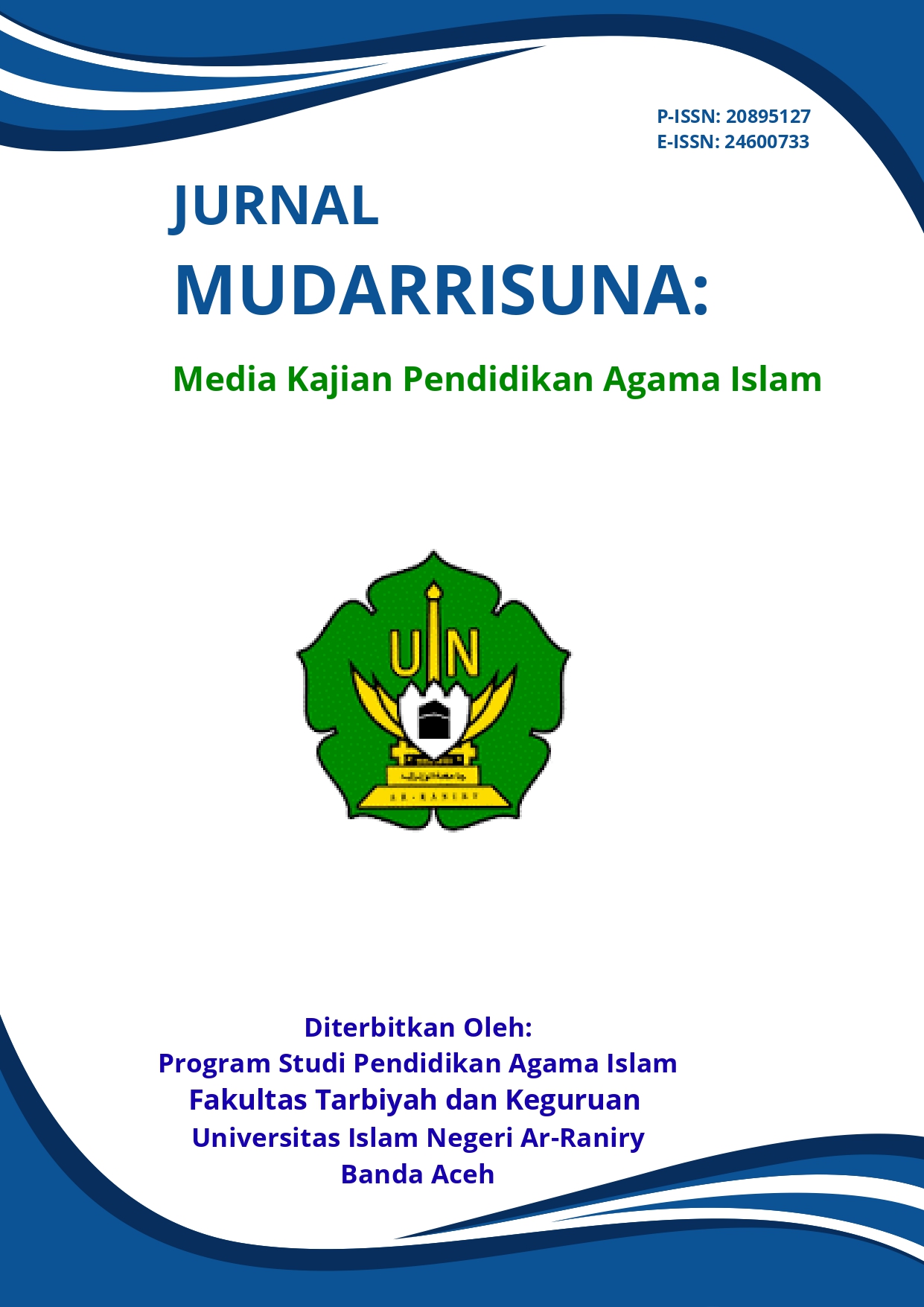Optimalisasi Pembelajaran Sejarah Kebudayaan Islam: Mengungkap Esensi Kurikulum Merdeka
DOI:
https://doi.org/10.22373/jm.v13i4.22202Keywords:
Optimalisasi Pembelajaran, Sejarah Kebudayaan Islam, KurikulumAbstract
ABSTRACT
Optimization of learning the history of Islamic culture involves the application of the philosophy of the Merdeka Curriculum as an innovative approach in the world of education. This philosophy offers freedom and creativity for educators in designing learning, especially in the context of teaching the history of Islamic culture. However, challenges arise in implementing these freedoms without creating inequalities or inconsistencies in the curriculum. Adequate training and support for educators is key to ensuring the effectiveness of the implementation of the Merdeka Curriculum. Optimization of learning should also take into account the differences in availability of resources between educational institutions. Efforts need to be made to address this gap and ensure that the implementation of the Merdeka Curriculum can be equitable and inclusive. Nevertheless, the Merdeka Curriculum can be an effective instrument to create a dynamic, relevant, and stimulating historical learning of Islamic culture and deep understanding and appreciation of Islamic values in student life. With a thoughtful approach, the implementation of the Merdeka Curriculum can make a positive contribution in the formation of student character and a broader understanding of Islamic history and culture.
ABSTRAK
Optimalisasi pembelajaran sejarah kebudayaan Islam melibatkan penerapan filosofi Kurikulum Merdeka sebagai pendekatan inovatif dalam dunia pendidikan. Filosofi ini menawarkan kebebasan dan kreativitas bagi pendidik dalam merancang pembelajaran, khususnya dalam konteks pengajaran sejarah kebudayaan Islam. Namun, tantangan muncul dalam mengimplementasikan kebebasan ini tanpa menimbulkan ketidaksetaraan atau ketidakkonsistenan dalam kurikulum. Pelatihan dan dukungan yang memadai bagi pendidik menjadi kunci untuk memastikan efektivitas penerapan Kurikulum Merdeka. Optimalisasi pembelajaran juga harus mempertimbangkan perbedaan ketersediaan sumber daya antar lembaga pendidikan. Upaya perlu dilakukan untuk mengatasi kesenjangan ini dan memastikan bahwa implementasi Kurikulum Merdeka dapat merata dan inklusif. Meskipun demikian, Kurikulum Merdeka dapat menjadi instrumen yang efektif untuk menciptakan pembelajaran sejarah kebudayaan Islam yang dinamis, relevan, dan merangsang pemahaman mendalam serta apresiasi terhadap nilai-nilai Islam dalam kehidupan siswa. Dengan pendekatan yang bijaksana, implementasi Kurikulum Merdeka dapat memberikan kontribusi positif dalam pembentukan karakter siswa dan pemahaman yang lebih luas terhadap sejarah dan kebudayaan Islam.
References
Ainun, N. (2022). Optimalisasi Pembelajaran Sejarah Kebudayaan Islam melalui Metode Timeline di MA AL-Mahrusiyah Lirboyo Kota Kediri (Doctoral dissertation, Institut Agama Islam Tribakti Kediri).
Asmara, Y. (2019). Pembelajaran Sejarah Menjadi Bermakna dengan Pendekatan Kontektual. Kaganga: Jurnal Pendidikan Sejarah Dan Riset Sosial Humaniora, 2(2), 105-120.
Purhanudin, M. V., Harwanto, D. C., & Rasimin, R. (2023). Revolusi dalam Pendidikan Musik: Menganalisis Perbedaan Kurikulum 2013 dan Kurikulum Merdeka Belajar. Tonika: Jurnal Penelitian dan Pengkajian Seni, 6(2), 118-129.
Mukoyimah, S., & Arsyad, M. (2023). Merdeka Belajar Kampus Merdeka: Tinjauan Filosofis dari Perspektif Filsafat Pendidikan Barat dan Timur serta Realitasnya. Jurnal Filsafat Indonesia, 6(2), 291-302.
Qodriani, R. N. L. (2022). Implementasi Metode Pembelajaran Kuis Interaktif Berbasis Mentimeter pada Mata Pelajaran Pendidikan Agama Islam. Jurnal Pendidikan Agama Islam Al-Thariqah, 7(2), 326-339.
Putra, H. (2010). Pondok Pesantren dan Tantangan Globalisasi (Doctoral dissertation, Tesis).
Downloads
Additional Files
Published
Issue
Section
License
Jurnal MUDARRISUNA: Media Kajian Pendidikan Agama Islam allows the author(s) to hold the copyright and to retain the publishing rights without restrictions. Authors who publish in this journal agree to the following terms:
- Authors retain copyright and grant the journal right of first publication with the work simultaneously licensed under a Creative Commons Attribution-ShareAlike 4.0 International License that allows others to share the work with an acknowledgment of the work's authorship and initial publication in this journal.
- Authors are able to enter into separate, additional contractual arrangements for the non-exclusive distribution of the journal's published version of the work (e.g., post it to an institutional repository or publish it in a book), with an acknowledgment of its initial publication in this journal.
- Authors are permitted and encouraged to post their work online (e.g., in institutional repositories or on their website) prior to and during the submission process, as it can lead to productive exchanges, as well as earlier and greater citation of published work.




